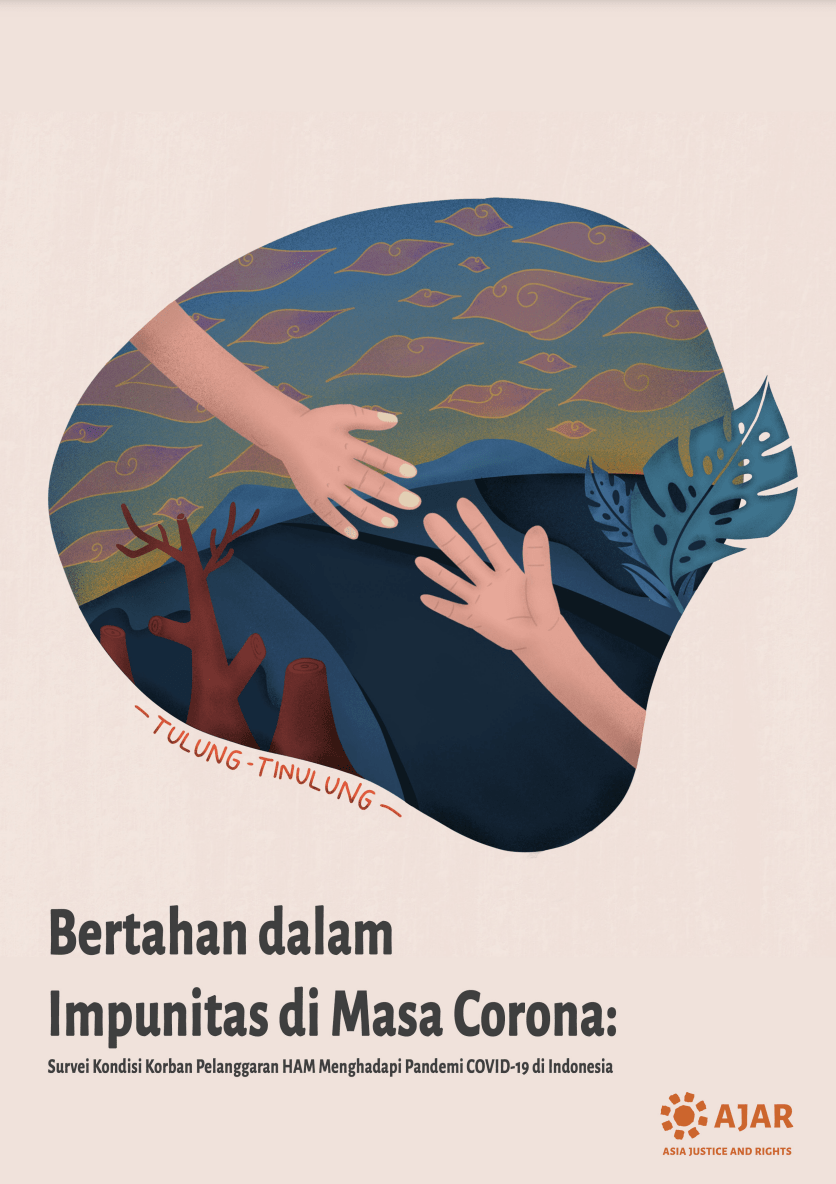Selama April hingga pertengahan Mei 2020, Asia Justice and Rights (AJAR) bekerja sama dengan AJAR bersama KontraS Sulawesi, Fopperham Yogyakarta, PASKA Aceh, KPKC Sinode GKI di Tanah Papua, IKOHI, LBH Bandung, KIPPER Yogyakarta, JPIT NTT, El-Addper Merauke, Jayapura Support Group, ELSHAM Papua, KATANE Support Group Merauke, dan Labarik Lakon melakukan survei bersama untuk mendapat potret kondisi korban dan keluarganya dalam bertahan di masa pandemi. Survei dilakukan kepada 402 responden di 13 provinsi.
Melalui survei ini kami menemukan sejumlah isu kritis yang harus diperhatikan yaitu besarnya kebutuhan korban akan pasokan bahan makanan karena banyak dari mereka yang terluput dari proses penerimaan bantuan pemerintah. Pentingnya memastikan korban mendapat akses kesehatan, terutama bagi korban lansia dan komunitas ODHA. Survei ini juga memperlihatkan bagaimana impunitas dan menyempitnya ruang demokrasi saat ini mempengaruhi pola hubungan antara pemerintah dengan rakyatnya, terutama dengan kelompok yang menjadi korban pelanggaran HAM di masa pandemi.
Kami berharap survei ini dapat menjadi acuan setiap elemen baik individu, komunitas, dan pemerintah dalam mencari langkah terbaik untuk mencegah dan mengurangi resiko kerentanan korban yang tidak hanya berfokus pada bantuan sosial saja, namun berupaya untuk mendorong adanya jaminan kesehatan sebagai bagian dari pemenuhan hak ekonomi, sosial dan budaya.
Unduh survey
[divide]
Enduring Impunity in the Time of Corona :
Survey of the Human Rights Victims Condition Facing COVID-19 Pandemic in
Indonesia
From April to mid-May 2020, the Asia Justice and Rights (AJAR) worked with AJAR together with KontraS Sulawesi, Fopperham Yogyakarta, PASKA Aceh, JPIC Synod GKI in Tanah Papua, IKOHI, LBH Bandung, KIPPER Yogyakarta, JPIT NTT, El-Addper Merauke, Jayapura Support Group, ELSHAM Papua, KATANE Support Group Merauke, and Labarik Lakon to conduct a joint survey to get a portrait of the condition of victims and their families in surviving the pandemic. The survey was conducted on 402 respondents in 13 provinces.
Through this survey, we found a number of critical issues that must be considered, namely the magnitude of the victims’ needs for food supplies because many of them were spared the process of receiving government assistance. The survey shows the importance of ensuring victims have access to health, especially for elderly victims and PLHIV communities. The survey also shows how impunity and the narrowing of the current democratic space affect patterns of relations between the government and its people, especially with groups who were victims of human rights violations during the pandemic.
We hope that this survey can be used as a reference for every element of both individuals, communities and governments in finding the best steps to prevent and reduce the risk of victim vulnerability. We hope that the future policy should not only focus on humanitarian aid but also to promote health services as part of the fulfillment of economic, social and cultural rights.
Download survey
